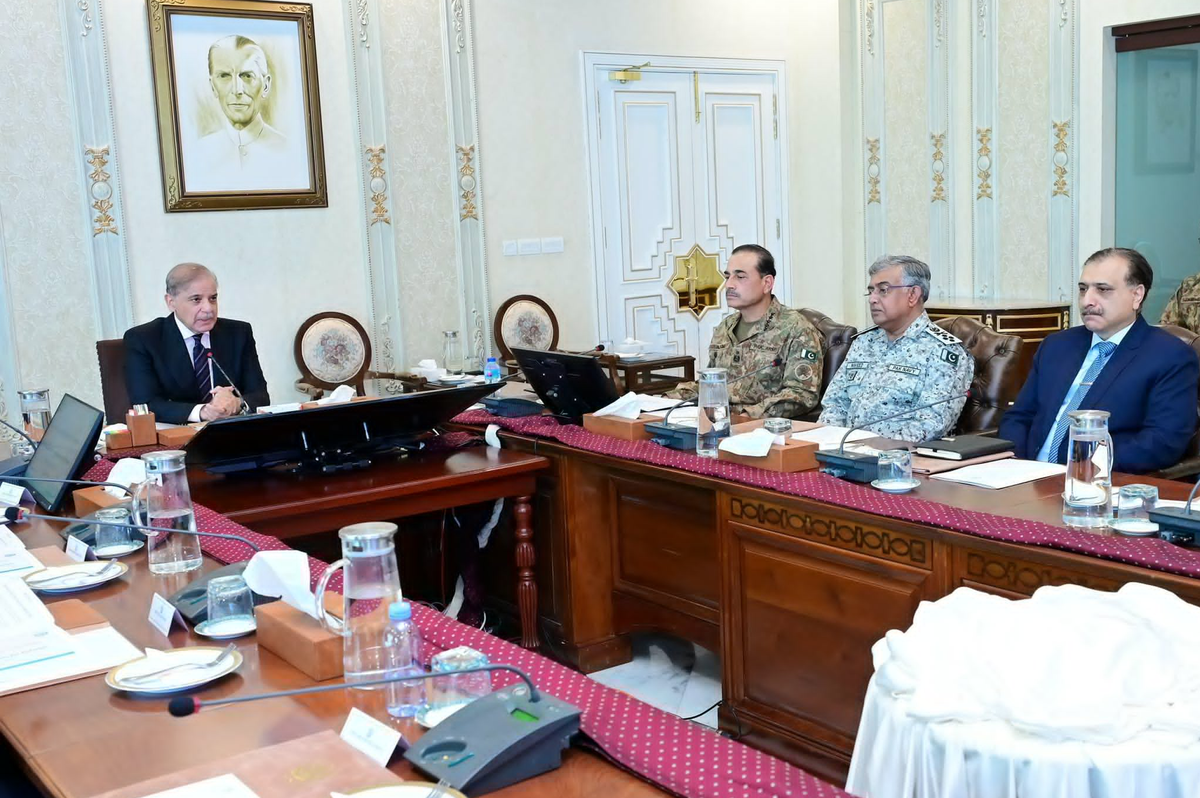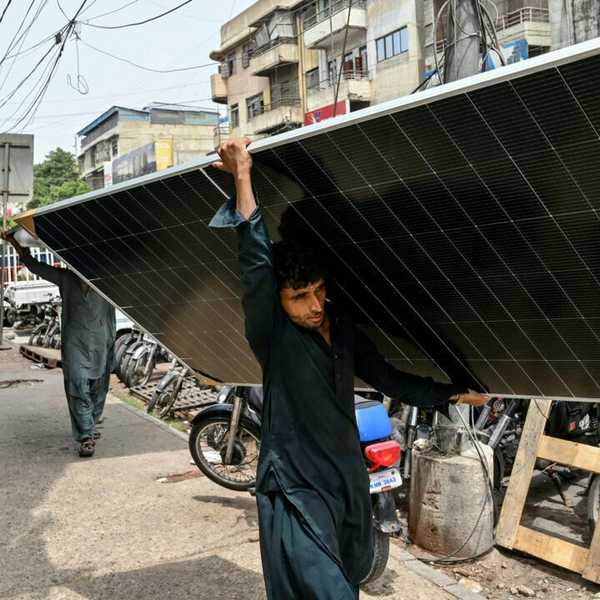Pakistan calls June 22 Iran strikes UN Charter breach, reaffirms Tehran’s right to self-defense
National Security Committee urges all sides to uphold international law and seek peaceful, diplomatic solutions

Aamir Abbasi
Editor, Islamabad
Aamir; a journalist with 15 years of experience, working in Newspaper, TV and Digital Media. Worked in Field, covered Big Legal Constitutional and Political Events in Pakistan since 2009 with Pakistan’s Top Media Organizations. Graduate of Quaid I Azam University Islamabad.

Pakistan PM Shehbaz Sharif chairs the National Security Committee meeting in Islamabad on Monday.
Courtesy: Government of Pakistan
Pakistan’s top national security forum condemned on Monday recent military strikes on Iran by both Israel and the United States, calling them violations of international law and the UN Charter.
The statement came after a meeting of the National Security Committee (NSC), chaired by Prime Minister Shehbaz Sharif, to review the rapidly deteriorating regional security environment.
The NSC, which includes senior civilian and military leadership, expressed deep concern over what it described as "acts of aggression" by Israel against Iran, noting that the attacks occurred during ongoing peace negotiations between Tehran and Washington.
The committee warned that such reckless actions threaten to further destabilize the region and jeopardize any diplomatic breakthrough.
In its official statement, the NSC reaffirmed Iran’s inherent right to self-defense under the UN Charter and offered heartfelt condolences to the Iranian government and people over the loss of innocent lives. Prayers were also offered for the speedy recovery of those injured in the attacks.
The committee also addressed the June 22 U.S. strikes on Iran’s nuclear sites at Fordow, Natanz, and Isfahan, though it did not name the United States directly. It noted that these attacks violated international law, resolutions of the International Atomic Energy Agency (IAEA), and the principles of the UN Charter.
The committee emphasized that the country remains actively engaged with all relevant stakeholders to de-escalate tensions. It reiterated its commitment to regional peace and stability, backing continued diplomatic efforts to prevent further escalation and calling for an urgent return to dialogue.
The NSC further urged all parties involved in the conflict to adhere strictly to international human rights and humanitarian law and to pursue peaceful, diplomatic solutions instead of military action.
The conflict between Iran and Israel entered its tenth day on June 22, following a dramatic escalation that began with Israeli airstrikes across Iran. Israel claimed its targets were nuclear weapons development sites, sparking a fierce Iranian retaliation with missiles and drones that struck deep into Israeli territory.
The fighting has led to hundreds of casualties in Iran and dozens more in Israel, according to official figures. Israel claims to have destroyed major Iranian military and nuclear installations, killing key nuclear scientists and senior military personnel. Yet Iran has continued to retaliate, breaching Israel’s Iron Dome defense system and striking civilian and commercial locations—including a hospital, a tech park housing a Microsoft office, and the Tel Aviv Stock Exchange.
The situation escalated further in the early hours of Sunday, when the United States launched airstrikes on multiple Iranian nuclear sites. President Donald Trump, speaking after the attacks, warned Tehran of more "devastating" attacks if it refused to engage in peace talks.
In a brief televised address lasting just over three minutes, Trump said Iran’s future now rests on a choice between “peace or tragedy,” and that the U.S. military had “many other targets” it was prepared to hit.







Comments
See what people are discussing